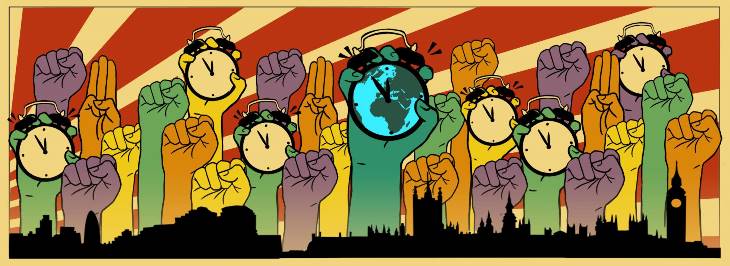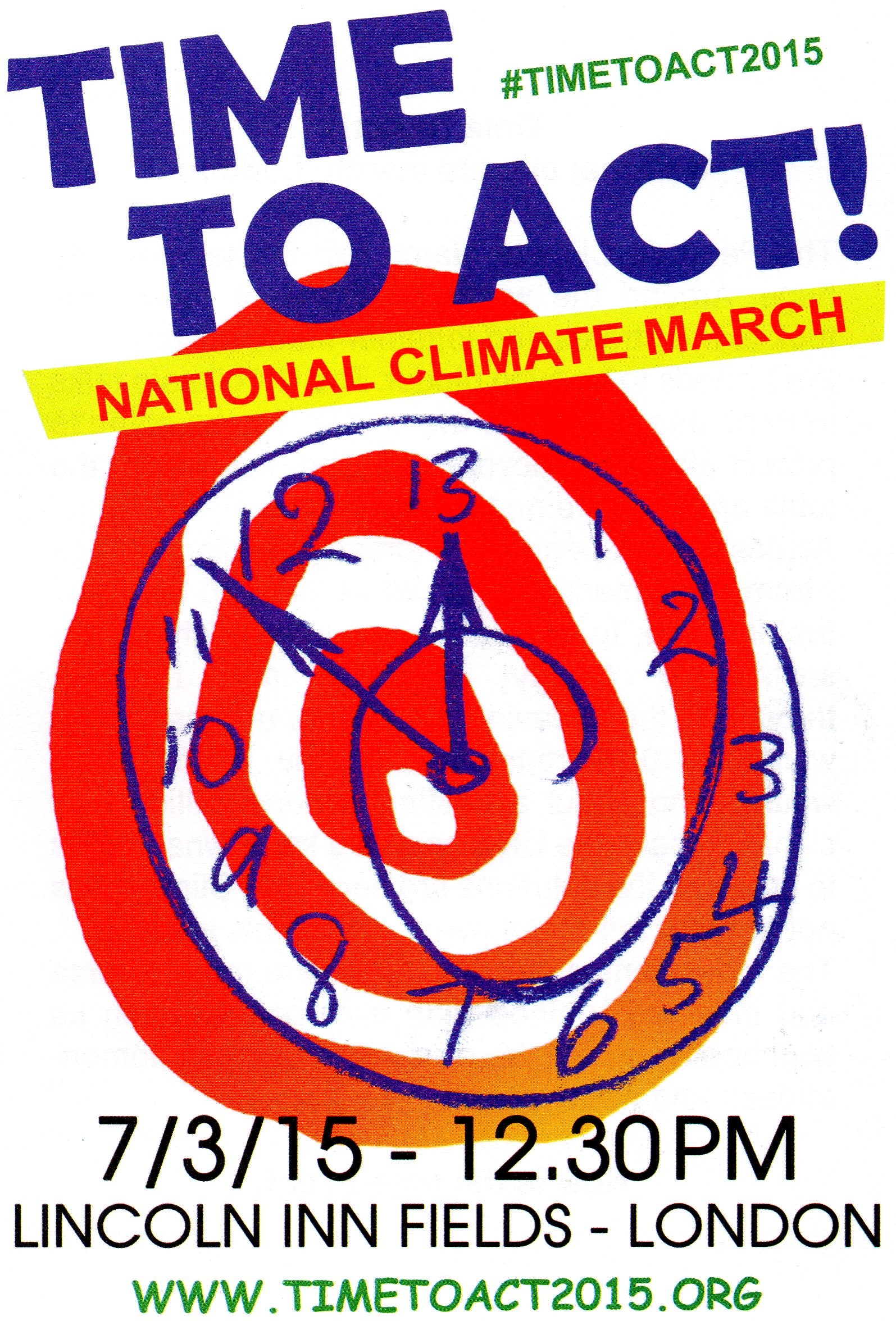
Fisher’s argument can be easily applied to mainstream discourses around climate change and militarism. Just as capitalism dominates the horizon of the possible, talks and ideas for a future without fossil fuels and wars are often rejected as mere utopian fantasy. Indeed, the ‘no alternative’ ideology has such a totalising effect that many seemingly treat ecological catastrophe and the arms trade as facts of nature that simply cannot be reversed, despite hard evidence and rational arguments for the opposite.
The broader political and social effects of this state of denial are evident: an unwillingness to change the status quo and the narrowing of our imagination. Indeed, expectations are already been watered down for the crucial Paris talks this December. There are also increasing calls for more military spending – even though at £37 billion UK military spending is already the sixth highest in the world.

The huge People’s Climate March last September laid the basis for a truly international movement and this time its multi-dimensional nature will be even stronger. Different blocs have been set up and will be marching together reflecting the variety of issues related to climate change. Trade unions, front-line communities fighting fracking, health groups, faith groups, students and teachers, food activists, artists – when was the last time that a movement was so diverse?
CAAT will be joining, along other peace groups, the No War! No Warming! bloc to highlight the connection between militarism and climate change.
Currently, the UK government spends 25 times more on research and development into weapons than renewables, a clear statement of priorities. It is obvious that pouring resources into military responses doesn’t just create more conflict, it also diverts resources from tackling the underlying causes of insecurity such as climate change. Shifting priorities would create a safer world – and more jobs than the entire arms industry.
Of course, these priorities are deeply entrenched within the ‘establishment’ as discussions of UK national security by three main UK parties continue to be narrowly focussed on supporting the armed forces, nuclear weapons and arms companies. Changing them won’t happen overnight. This is why we need to use every possible occasion to highlight the need for a strategy that focuses on real threats and ensure a proper debate on the UK’s security policy and role in the world.
As George Monbiot recently wrote, ‘society moves from the margin, not the centre’. Let’s hope that the People Climate’s March will be viewed in the future as the moment that society started moving in the right direction.
The Time to Act march starts at 12.30pm on Saturday (March 7) in Lincoln Inns Fields, London. To read more about it and learn about how you can support the campaign, visit the Facebook event page or go to www.timetoact2015.org

